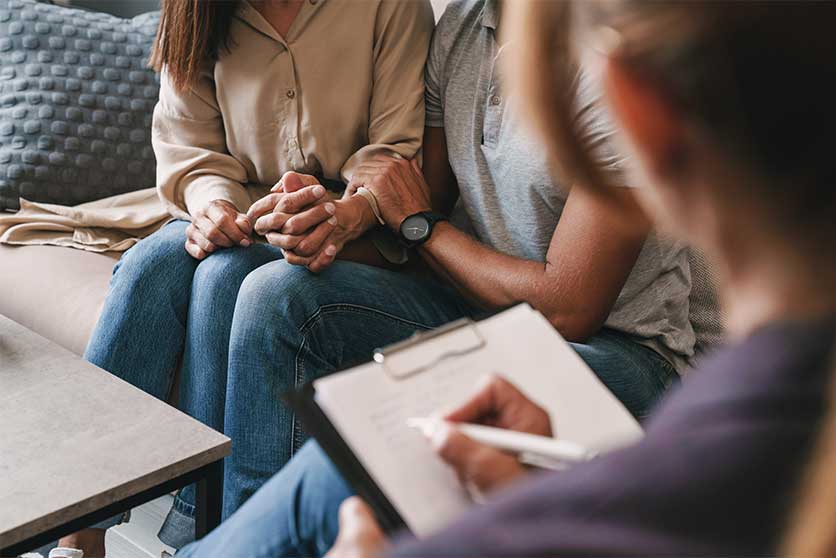12 Helpful Activities You Do During Inpatient Rehab
During inpatient rehab, you spend most of your time in individual therapy, group therapy, and support groups. You also have access to a number of wellness activities. Depending on the program, these activities may include journaling, mindfulness meditation, yoga, and arts and crafts.

When you battle substance use disorder (drug addiction), your entire life may revolve around drug use. As you recover, it’s important to fill your free time with healthy activities.
That’s why inpatient addiction treatment programs offer numerous activities that boost your sense of well-being. Here are 12 of the most popular.
1. Individual Therapy
Therapy plays an essential role in the addiction recovery process. Along with helping you manage drug cravings, your therapist can address any mental health concerns that may have contributed to your substance abuse, such as stress, grief, or mental illness.
The most common type of therapy for addiction is called cognitive behavioral therapy (CBT). During CBT, your therapist helps you change unhelpful beliefs and behaviors related to your addiction.
You will also learn important coping strategies, such as deep breathing and progressive muscle relaxation.
2. Group Therapy
In group therapy, a mental health professional teaches you and your peers about recovery-related topics such as stress management, relationship skills, and self-care. Each group member gets a chance to discuss their experiences in these areas and share coping tips.
Some addiction treatment programs also offer another type of group therapy called family therapy. In family therapy, you and your loved ones learn how to work together to support your long-term sobriety.
3. Support Groups
When starting your recovery journey, you might feel misunderstood by your family, your friends, and even your healthcare providers.
In a peer support group, you get to connect with people who truly understand your struggles. You also have the opportunity to make new friends who share your goal of building a drug-free life.
The most popular recovery groups are 12-step programs such as Alcoholics Anonymous (AA) and Narcotics Anonymous (NA). Other groups include SMART Recovery, Celebrate Recovery, and Women For Sobriety.
4. Journaling
Between therapy sessions, you can explore your progress in a journal. Journaling gives you a chance to express difficult emotions and find solutions to recovery-related challenges.
You can also use your journal to list people, places, and other things you feel grateful for. According to the National Institutes of Health (NIH), practicing gratitude can ease stress and boost your mood. These effects can make your recovery much easier.
5. Mindfulness Meditation
During recovery, you may face a host of difficult emotions, including anxiety, guilt, and hopelessness. You can learn to handle these feelings more effectively through mindfulness meditation.
This type of meditation involves focusing on the present moment and letting your thoughts pass without judgment.
Studies show this practice reduces anxiety and depression. It can also help you sleep better.
6. Yoga
Yoga is an ancient practice that involves meditation, breathing exercises, and physical postures. Research shows it has a number of mental and physical health benefits, including:
- improved flexibility
- reduced stress
- improved confidence
- better concentration
- better sleep
In general, the stronger your health, the easier your recovery journey.
7. Exercise
Physical activity can take your mind off drugs by providing a natural high. When you exercise, your body releases endorphins.
These natural chemicals decrease stress and improve your mood. Many rehab centers encourage exercise by offering amenities such as walking trails, basketball courts, and gyms. Some also hold exercise classes to help you make the most of your health.
8. Arts & Crafts
The addiction treatment process may bring a variety of difficult feelings. To help you express these feelings, many rehab programs offer painting, sculpting, and other arts and crafts. These activities not only help you relax but also boost your confidence and keep you busy.
Due to these benefits, lots of people continue making art even after they leave rehab.
9. Music Therapy
Like arts and crafts, music helps you express your emotions as you strive for a drug-free life. That’s why many addiction treatment centers offer music therapy. This type of therapy involves activities such as listening to music, making music, and writing songs.
In addition, some rehab centers schedule karaoke nights. These events allow you to enjoy music while having fun with your peers.
10. Outdoor Activities
Spending time in nature helps you recover from stress. The fresh air, sunlight, and greenery create a sense of calm amidst the chaos of recovery.
To promote communion with nature, many rehab programs offer outdoor activities such as cornhole, cookouts, and bonfires. Some also hold therapy sessions outdoors when weather permits.
11. Game & Movie Nights
Recovery brings a great amount of stress, especially in the early days. To help you relax, some rehab centers schedule game nights or movie nights.
These activities help you realize that you can have fun without using drugs. They also help you strengthen your relationships with the people in your treatment program.
12. Aftercare Planning
Before you finish treatment, your doctors will work with you to create a personalized aftercare plan. This plan will consist of strategies that reduce your risk of relapse.
Many aftercare plans include the activities listed above, such as ongoing therapy, journaling, and exercise. Some plans also include assistance with education, employment, or housing.
To learn more about addiction treatment programs, please reach out to Ohio Recovery Center. Our board-certified treatment providers offer medical detox, mental health counseling, and other evidence-based services to help you or your loved one thrive.
- National Institutes of Health https://newsinhealth.nih.gov/2021/06/mindfulness-your-health
- National Institutes of Health https://newsinhealth.nih.gov/2019/03/practicing-gratitude
- National Library of Medicine: MedlinePlus https://medlineplus.gov/ency/patientinstructions/000876.htm

